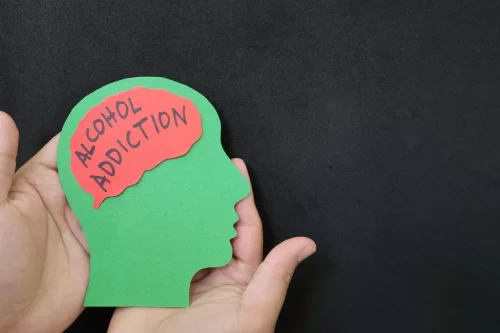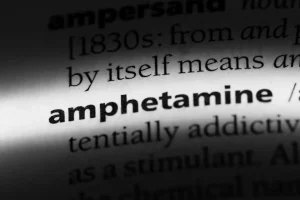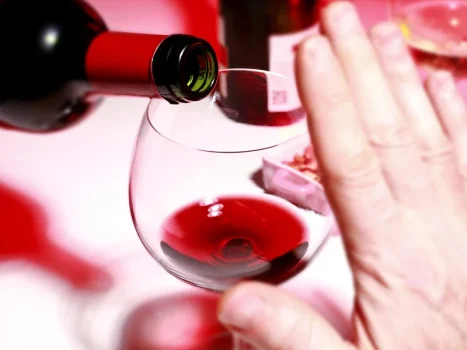
Observational trials suggest that alcohol consumption also raises the risk of specific subtypes of breast cancer that respond to these hormones. Together, that evidence is highly persuasive that alcohol increases the chances of breast cancer. Such nuance is rarely captured in broader conversations about alcohol research—or even in observational studies, as researchers don’t always ask about drinking patterns, focusing instead on total consumption. To get a clearer picture of the health effects of alcohol, researchers and journalists must be far more attuned to the nuances of this highly complex issue.
Common sign and symptoms of mania in bipolar disorder
Moderate drinking is defined as no more than one standard drink per day for women and no more than two for men. For example, it can cause liver damage — including cirrhosis — brain damage, heart failure, diabetes, cancer and susceptibility to infections (9, 54, 58, 72, 73, 74). Some people become addicted to the effects of alcohol, a condition known as alcohol dependence or alcoholism. People may start abusing alcohol due to depression or become depressed by abusing alcohol. In worst-case scenarios, severe alcohol-induced brain damage may impair people’s ability to lead an independent life.
Alcohol Use Disorder Symptoms
It’s tempting to assume that because heavy alcohol consumption is very bad, lesser amounts must be at least a little bad. But the science isn’t there, in part because critics of the alcohol industry have deliberately engineered a state of ignorance. Yet we continue to see reductive narratives, in the media and even in science journals, that alcohol in any amount is dangerous. Earlier this month, for instance, alcohol is better than drugs the media reported on a new study that found even small amounts of alcohol might be harmful. Developing an addiction to drugs isn’t a character flaw or a sign of weakness, and it takes more than willpower to overcome the problem. Abusing illegal or certain prescription drugs can create changes in the brain, causing powerful cravings and a compulsion to use that makes sobriety seem like an impossible goal.
- Red wine may be one of the healthiest alcoholic beverages, probably due to its high concentration of antioxidants.
- Take the assessment and get matched with a therapist in as little as 48 hours.
- Those heightened emotions might lead people to say what’s on their sober mind, but they can also put someone in a volatile state where they say something they don’t really mean or deeply regret later.
- Ginger comes in several forms, including chews, candies, supplement capsules, teas and tablets.
- You might also hear this called “pre-alcoholic.” At this stage, you might drink to escape something going on in your life or to relax and feel better about yourself.
Treatment programs for veterans with co-occurring disorders
A study published last week, for instance, found a medication called AT-1501 prevented transplant rejection in primates without damaging their kidneys. For people with a history of mild motion sickness (which means that it does not interfere with your ability to function), experts recommend environmental modifications and natural remedies. Medications are usually not recommended because the side effects may outweigh the benefits, says Tuznik.
- They get their buzz-promoting properties from a substance in the cannabis plant called tetrahydrocannabinol (aka THC), explains the National Institute on Drug Abuse.
- Medicare Advantage plans must meet stricter standards to improve access to behavioral health specialists.
- You can opt into the plan by contacting your Part D company.
- Whether you consume alcohol or edibles, the choice is up to you.
- Fatty liver gradually develops in 90% of those who drink more than a 1/2 ounce (15 ml) of alcohol per day (4, 5).
Marilyn Perkins is a science writer and illustrator based in Los Angeles, California. She received her master’s degree in science writing from Johns Hopkins after studying neuroscience and studio art https://ecosoberhouse.com/ at Pomona College. Alcohol’s ability to help people come out of their shell may help them say what’s on their minds, but White says its effects on emotions can make those thoughts more mercurial.

What comes first: Substance abuse or the mental health problem?

Half of those are due to heavy drinking, while the other half result from accidents caused by drinking. AUD treatment is usually centered on abstinence — getting you to completely give up alcohol. But some research now shows that cutting back on heavy drinking, or what’s known as harm reduction treatment, can be useful. If your doctor thinks you need more support to stop drinking, they’ll likely refer you to a mental health provider, such as a counselor or therapist. If you’re at this stage, alcohol has become the focus of your life, whether you’re able to admit that or not.

What other drug experts say about the UK study
People’s responses to each substance can vary greatly, so what seems safer for one person might not work for someone else. The feeling of intoxication is different for every person. While one person might feel relaxed while drunk, another might feel restless. There are countless cannabis products on the market and a number of consumption options, from vaping to edibles. In the US, one standard drink is any drink that contains 0.6 fluid ounces (14 grams) of pure alcohol (ethanol).
More than a fifth of Pa. adolescents don’t feel safe at school
If you already drink at low levels and continue to drink, risks for these issues appear to be low. As with the short-term effects of alcohol and weed, the long-term effects differ from person to person. Numerous factors can predispose people to problematic drinking, such as family history, social environment, mental health and genetics. More than four drinks daily appear to cause a fivefold increase in your risk of mouth and throat cancer, as well as an increase in your risk of breast, colon and liver cancer (58, 59, 61, 62).

Failed U.S. ‘war on drugs’ endangers Central American bird habitats, study warns
Plus, they’re unique substances that produce different effects, which makes side-by-side comparisons difficult. Binge drinking is a form of alcohol abuse and can cause harm. That said, consuming high amounts does not provide greater health benefits.
